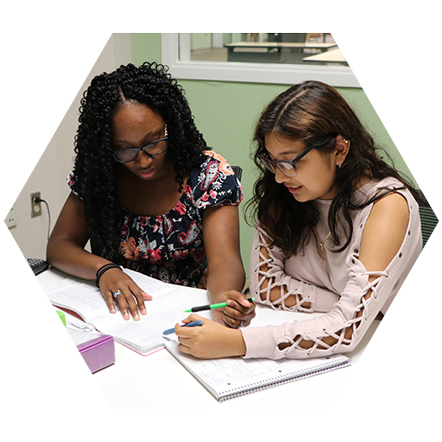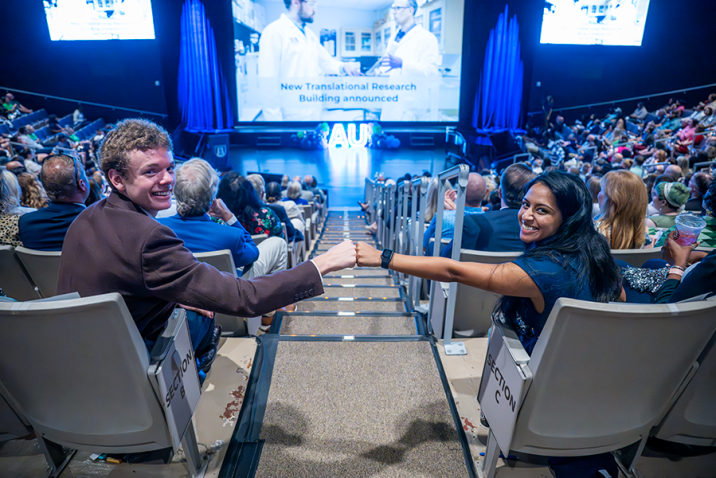College of Science & Mathematics
Ignite Your Curiosity
At the College of Science and Mathematics, we transform students into problem-solvers. Our undergraduate and graduate programs in biology, chemistry, physics, and mathematics are designed to challenge and inspire. We believe in learning through doing, which is why our curriculum is built on hands-on research and discovery. Students gain more than just knowledge—they develop critical thinking skills, intellectual curiosity, and a commitment to community. With guidance from our expert faculty, you'll be prepared to tackle the global challenges of today and tomorrow.
Contact Us
College of Science & Mathematics
Health Sciences Campus
Science & Mathematics Building
706-729-2259
Creativity, Discovery, Engagement
Departments and Programs
The College of Science and Mathematics offers nationally recognized, academically challenging, and engaging programs.
Biological Sciences
Stimulate an interest in scientific inquiry and the diversity of living organisms. We seeks to equip students with skills necessary for future employment in various scientifically-related fields
Chemistry and Biochemistry
Provides students with the solid foundations they need to develop analytical and problem-solving skills that are sought-after by graduate and professional schools
Mathematics
Teaching of logical, numerical, and analytical skills; to the advancement of knowledge; and to the enrichment of the community in a climate which fosters empowerment, humane values, and a life-long love of learning
Neuroscience
With breakthroughs in technology and the understanding of the brain, studying neuroscience can provide students with a deep understanding of human behavior, cognition, and the nervous system
Physics and Biophysics
Allows students to develop the theoretical and practical problem-solving skills that are required in both graduate schools as well as industry

Student Success
Healthcare Careers Living Learning Community for Spanish-Speakers
Specifically designed to meet the need for fluent Spanish-speakers in healthcare, the primary focus of this Living Learning Community (LLC) is to assist first-year students in achieving academic success during this crucial period for a chosen healthcare career.
An intermediate level of proficiency in spoken Spanish is required to be eligible for this LLC, and a student's choice of major should be appropriate for their chosen healthcare field.
All biology courses were challenging but my professors helped me develop a technique to understand the material instead of memorizing it, which made me complete each course feeling accomplished.
Za'Mya Thomas
Biology Student
The Mathematics department makes me feel comfortable approaching professors about anything. I have learned more than just math here and I am grateful for the experience.
Austin Mobley
Mathematics Student
Being a chemistry major is very challenging, but that is what makes it more enjoyable. The gratification of overcoming a challenging concept is one of the most incredible feelings I've ever experienced.
Stephanie Adebola
Chemistry Student
News & Events

AU earns Carnegie Elective Classification for Community Engagement
AU earns Carnegie Elective Classification for Community Engagement
‘Moving forward with purpose’: Augusta University 2025 Year-in-Review
‘Moving forward with purpose’: Augusta University 2025 Year-in-ReviewCreating Opportunities
The College of Science and Mathematics provides students with strong foundations in the sciences as well as preparation for careers, citizenship, and a life-long love of learning. We are committed to providing experiences promoting scientific inquiry and discovery and dedicated to creating opportunities for intellectual growth and community involvement.
